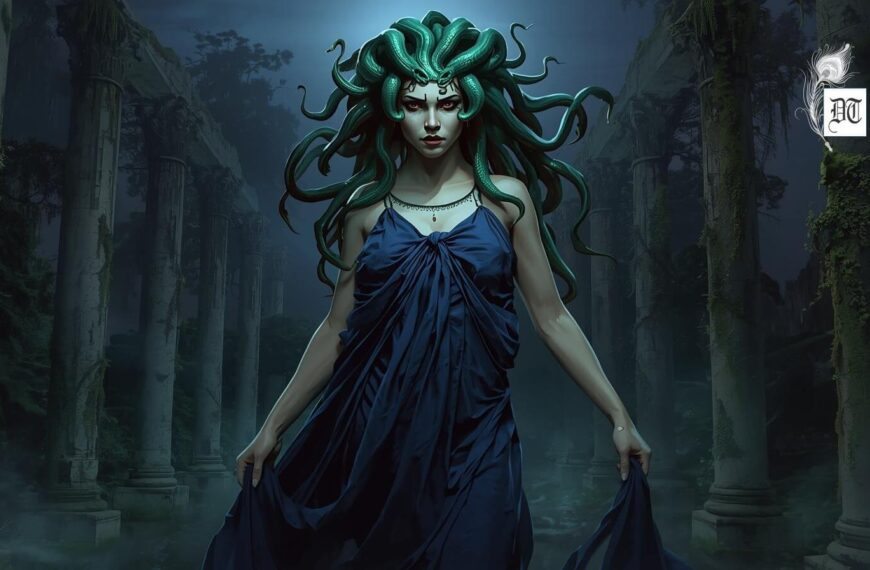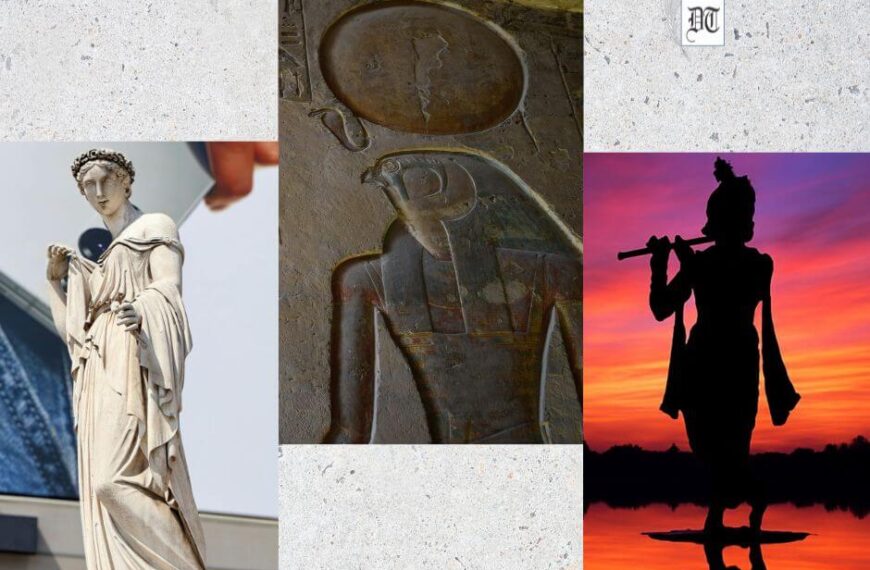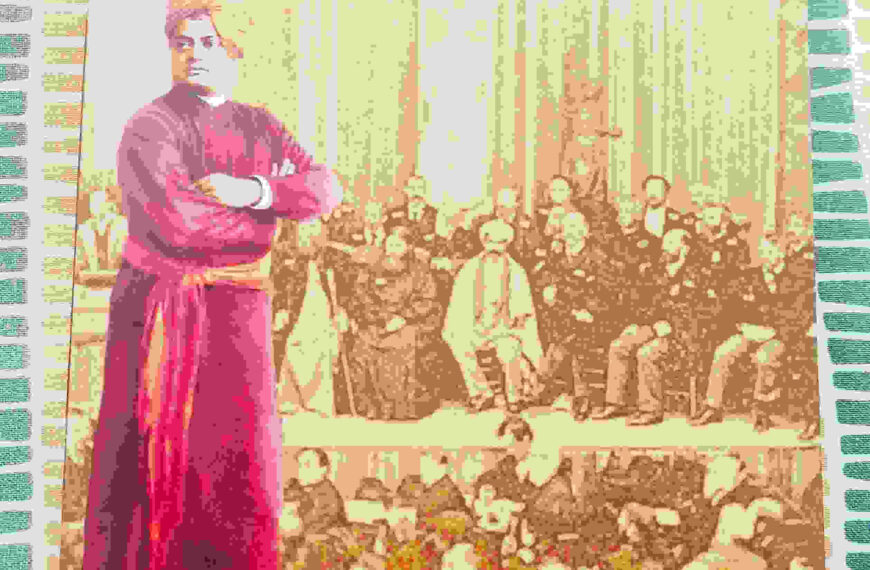Srimad Bhagavatam skillfully combines all the aspects of creation, where the divine in various forms create, preserve and annihilate only to transform and create again. A close look at the stories can trigger amazing insights that still has many bearings to our daily life, says Nilanjana, our columnist for more than a year. She talks about memory and various other aspects to deepen our understanding of myth and mythology, in the Special Feature, exclusively for Different Truths.
Many parts of India celebrate the last full moon of the year as Dattatreya Jayanti, the birthday of the great sage Dattatreya. The adopted son of Rishi Atri and Anasuya was special. He had all the three aspects of creation embodied in him – Brahma Shakti (power to create), Vishnu Shakti (power to preserve) and Shiva Shakti (power to transform). As the last full moon of the year lit the sky with all her glory, the year 2017 with Bhagavatam brought forth insights that can inspire us even today.
 Srimad Bhagavatam skillfully combines all the aspects of creation, where the divine in various forms create, preserve and annihilate only to transform and create again. A close look at the stories can trigger amazing insights that still has many bearings in our daily life.
Srimad Bhagavatam skillfully combines all the aspects of creation, where the divine in various forms create, preserve and annihilate only to transform and create again. A close look at the stories can trigger amazing insights that still has many bearings in our daily life.
The various vikritis (perversions) that are represented by the rakshashas (demons) seem like a magnification of our flaws – ego, anger, lust, pride, arrogance, and others. The bard has intelligently personified all these qualities with amazing creativity to make them look wickedly monstrous. At their will, they assume huge proportions only to bother the humans, who under the grip of fear, are never able to cope up with the ugliness that is their own creation. Seeking refuge in the divine, that is again an extension of their own virtue, they can, of course, overturn tables and toss away the perversions that have paralyzed their lives.
The mind of the human is like changing seasons – at times parched, at times flooded and sometimes tranquil. The aware human being, instead of getting carried away by the flow of events, can aim to be a witness. Like the sky that seems unaffected by sunshine, stars or clouds, humans can aim to stop reacting at every situation or comment to aim for a balance that is very desirable at every point of time in life.
Many times, we aim for special, out-of-the-world experiences. The question to ask ourselves is – are we ready to handle them? Krishna’s mother, Yashoda, was given a glimpse of cosmic creation, but she was  unable to grasp it. Hence the illusion of duality enveloped her again. Besides, many of us really do not seek experiences that the mind may not be able to grasp. If we try to measure life through the known lens of the intellect, our understanding may not necessarily find that expansion that we are seeking for.
unable to grasp it. Hence the illusion of duality enveloped her again. Besides, many of us really do not seek experiences that the mind may not be able to grasp. If we try to measure life through the known lens of the intellect, our understanding may not necessarily find that expansion that we are seeking for.
Discrimination, in various forms, has been and become a part of the world. In Bhagavatam, the cosmic energy does not discriminate. Divinity assumes various forms, depending on the need of the hour, and acts to resolve the conflict that has caused so much trouble. Hence Vishnu assumes the avatar of a fish, a turtle, a pig, a dwarf, half man-half lion and many human forms.
The stories have been written by Ved Vyasa, but narrated by his son, Sukhadeva to Parikshit who was cursed to die in a short time. Memory does play a major role here since the stories have to be narrated as written. We are all aware what havoc memory plays in our lives – adding to pleasant ones and subtracting from unpleasant ones – to create and believe what we choose to. For what is bygone, unless recorded, just exists in the minds of people who can then create, modify or delete as they please. Sukhadeva is believed to have narrated the stories as they were written.
 Gripped by the fear of death, Parikshit seeks refuge in these stories that contain the essence of Vedic wisdom. Dry philosophy may seldom appeal to the human mind, but the same narrated through stories do stay in public memory for a much longer time and can be narrated down generations. Irrespective of whether people understand and appreciate the symbols and the story, the mind gets the much-needed wisdom. At the end of the narration, Parikshit tells Sukhadeva that he does not fear death anymore since the essence of Vedic wisdom had pacified his fears and helped him remain poised even when death was knocking the door.
Gripped by the fear of death, Parikshit seeks refuge in these stories that contain the essence of Vedic wisdom. Dry philosophy may seldom appeal to the human mind, but the same narrated through stories do stay in public memory for a much longer time and can be narrated down generations. Irrespective of whether people understand and appreciate the symbols and the story, the mind gets the much-needed wisdom. At the end of the narration, Parikshit tells Sukhadeva that he does not fear death anymore since the essence of Vedic wisdom had pacified his fears and helped him remain poised even when death was knocking the door.
Our journey with Bhagavatam, of course, continues through the next year with many new symbols, insights, and realisations waiting to be known.
Wishing you all a fulfilling and blissful 2018!
©Nilanjana Dey
Photos from the Internet
#LookingBackAt2017 #Bhagavatam #DattatreyaJayanti #Yosada #Krishna #Parikhit #DattatreyaJayant #DifferentTruths



 By
By

 By
By
 By
By